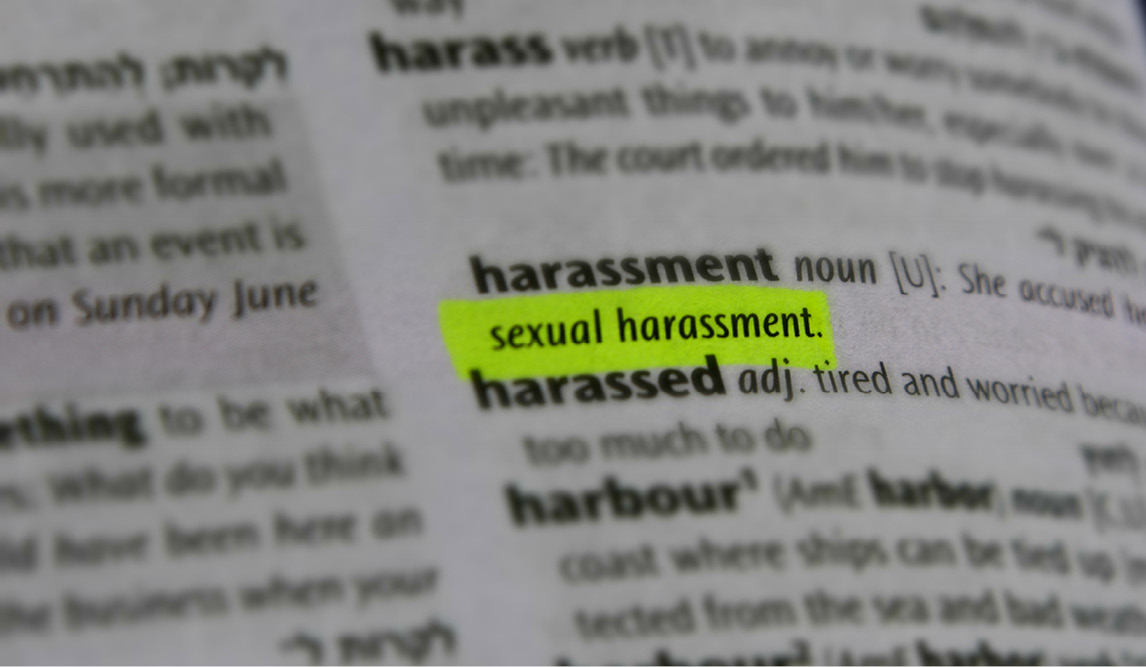News
Wilder School faculty and staff work to improve sexual harassment policies in academia

May 1, 2019
As the #MeToo movement continues to gain traction, sexual harassment has become a prominent topic in policymaking, in research, and in the media. Within the Wilder School, Sarah Jane Brubaker, Ph.D., associate professor in the Criminal Justice Program and director of the Graduate Certificate in Gender Violence Intervention, and Brittany Keegan, Ph.D., director of the Land Use Education Program and research coordinator in the Center for Public Policy, have been working to identify how policies for sexual harassment prevention in academia can be improved.
According to the National Academies of Sciences, Engineering, and Medicine, the academic workplace has the second highest rate of sexual harassment. The only workplace with a higher rate of sexual harassment is the military.
 The project began in early 2018, when Brubaker was appointed as chair of the ad-hoc Anti-Harassment Committee for the Society for the Study of Social Problems (SSSP) to revise and expand their current sexual harassment policy. Brubaker and Keegan then began a study to identify promising practices for writing and implementing sexual harassment policies, as well as for the reporting and investigation process. Using recommendations from the literature, policymakers and practitioners, they created a 27-point framework of what an ideal sexual harassment policy should entail. They also analyzed the sexual harassment policies of 25 academic organizations to determine the extent to which current policies are aligned with promising practices.
The project began in early 2018, when Brubaker was appointed as chair of the ad-hoc Anti-Harassment Committee for the Society for the Study of Social Problems (SSSP) to revise and expand their current sexual harassment policy. Brubaker and Keegan then began a study to identify promising practices for writing and implementing sexual harassment policies, as well as for the reporting and investigation process. Using recommendations from the literature, policymakers and practitioners, they created a 27-point framework of what an ideal sexual harassment policy should entail. They also analyzed the sexual harassment policies of 25 academic organizations to determine the extent to which current policies are aligned with promising practices.
Brubaker used this framework and analysis to draft an expanded and revised sexual harassment policy for SSSP, which has recently been approved by their board of directors. During their analysis Brubaker and Keegan saw that the Association for Public Policy Analysis and Management (APPAM) did not have a sexual harassment policy, so Brubaker reached out about this issue. She was then asked to join APPAM's ad-hoc committee to create one.
“This project is a great example of how academic research can translate into real-world policies,” said Brubaker, “it’s exciting that our recommendations have already been used by two organizations, and I hope that our framework continues to be used as other organizations create and expand their sexual harassment policies.”
Moving forward, Brubaker and Keegan are creating a workshop for government agencies, nonprofits, and businesses to address and prevent sexual harassment within their organizations through policy and action. This workshop will be held through the Center for Public Policy and is set to launch in spring of 2020.
“What started out as a research project has evolved into something that, I hope, can really make a difference,” said Keegan, “through the framework, analysis, and upcoming workshop, we can help to address and prevent sexual harassment in academia. It’s an issue that has gone on for far too long.”